Chef Coco first arrived in South Africa in 2000 for a six-month consulting job. After a brief return to Belgium, he told his family they’d be moving to South Africa within three months – and he hasn’t looked back. “I feel at home in Johannesburg. I’ve never lived anywhere longer than this,” he tells us.
"We’re not reinventing Africa, we’re revealing its sophistication." – Chef Coco Reinarhz
We have loved following Chef Coco's culinary journey. In 2001, he opened a tiny 25-seater café in Greenside called Ma Passion (“My Passion” in French), serving mostly French cuisine with early nods to the African flavours that would later define his culinary voice. From there came Sel et Poivre (“Salt and Pepper”) in Morningside, followed by the acclaimed Épicure – each a step closer to his vision of refined, pan-African dining.
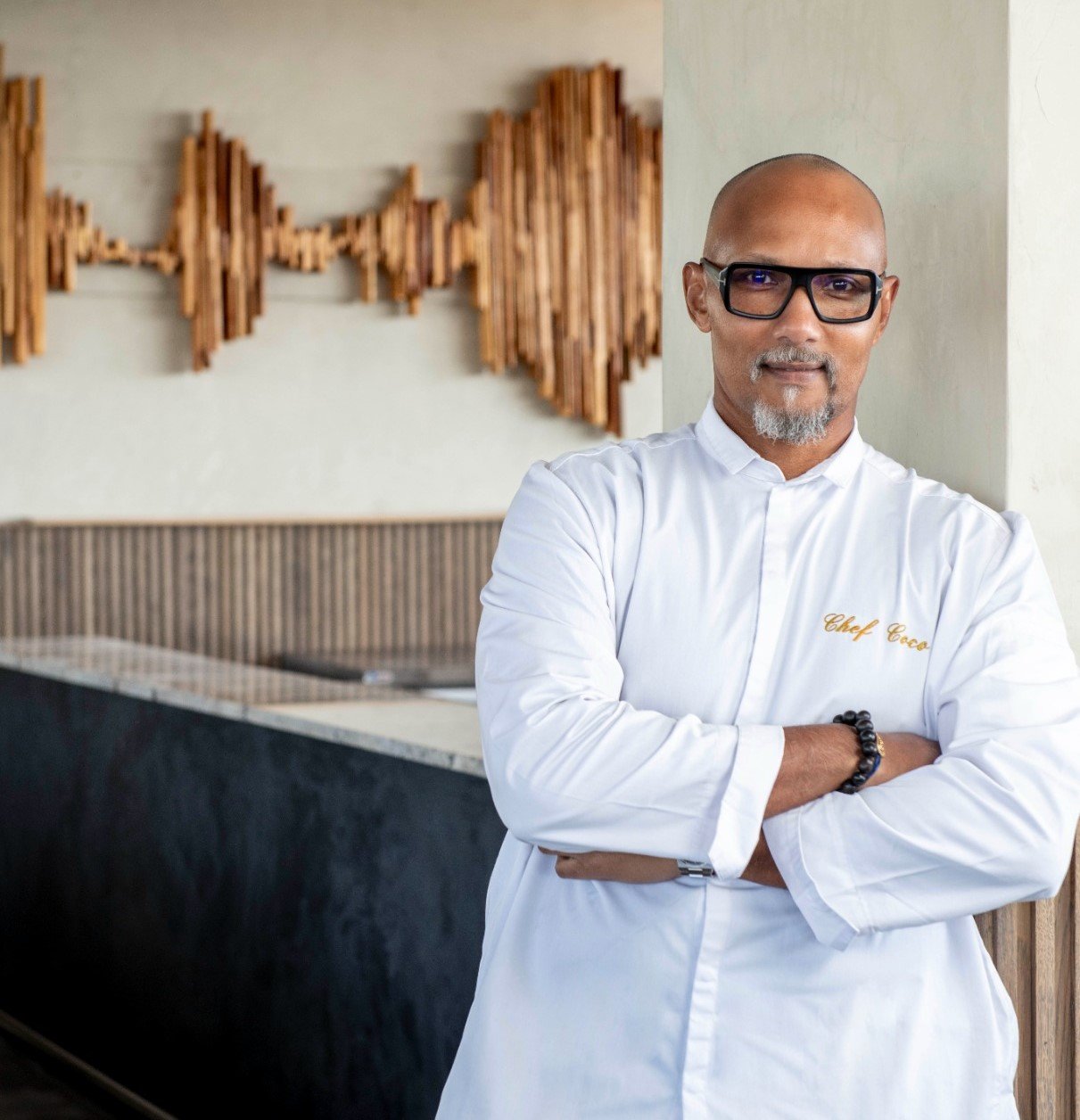
in the pan-African food movement. Photo: Épicure at ONE.
When Épicure first opened its doors in 2018, it quickly made a name for its elevated interpretation of African cuisine. Then came the Covid-19 lockdown, forcing a pause. After five years of waiting for the right moment and searching for the perfect new home, Épicure at ONE reopened in Rosebank in June 2025. “At Épicure, we don’t say bon appétit, we say bon voyage,” says Chef Coco. It’s a fitting philosophy in a city like Johannesburg: proudly African, yet one that rarely sees its cuisine showcased at the heart of its trendiest dining districts. Épicure at ONE fills that gap with style and substance.
Today, Chef Coco cooks for a city he describes as vibrant, fearless, and evolving, and is guided by a clear mission: to present African cuisine not as an afterthought or an idea, but as excellence, complexity, and fine dining in its own right. We sat down with the chef-patron to talk about transcendent flavours, how food builds community, and the heartbeat of Joburg’s culinary scene.
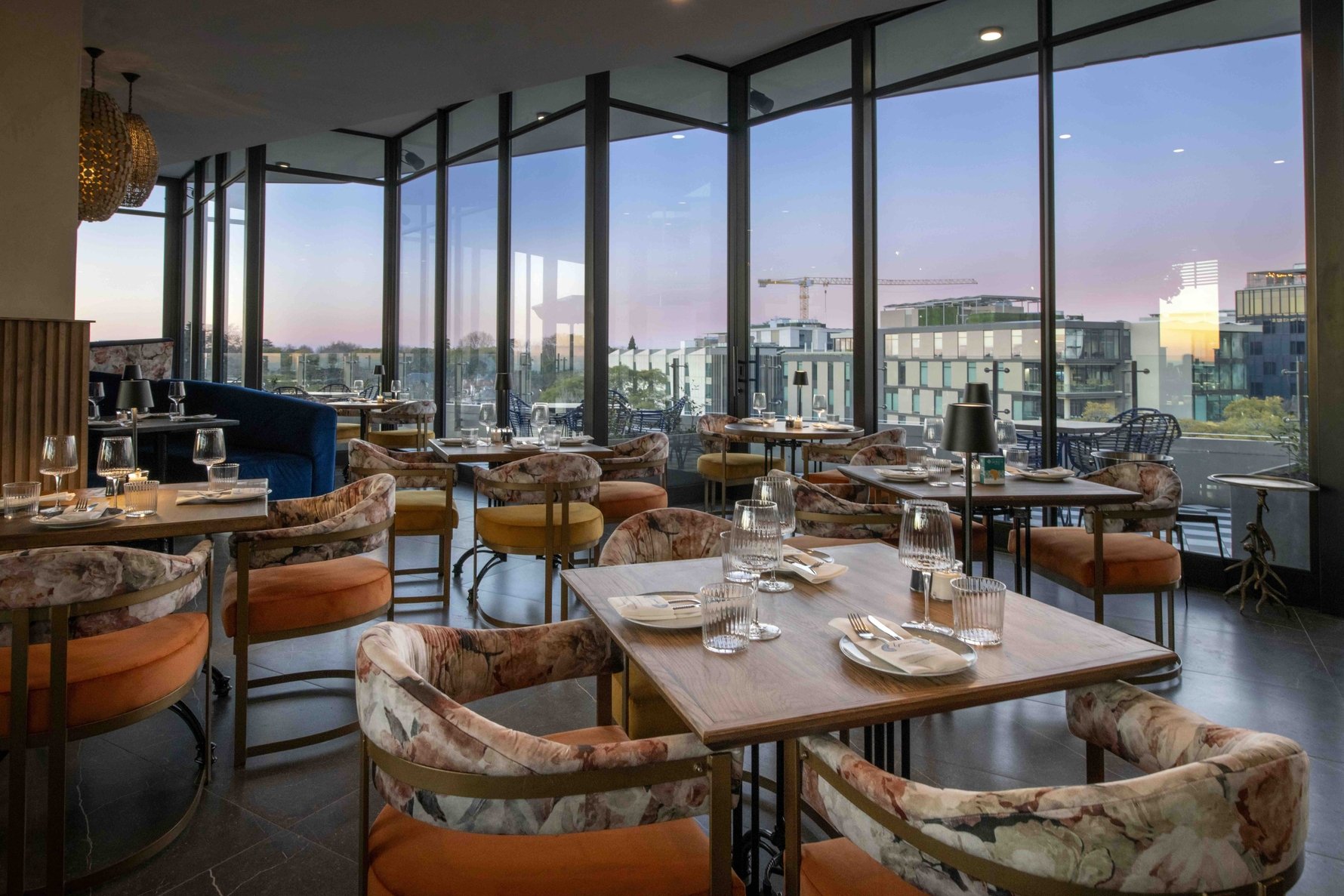
Joburg is often described as Africa’s most cosmopolitan city. How do you cook for a city that’s always in flux, yet still deeply rooted?
Johannesburg is alive, constantly evolving, but never forgetting where it comes from. I cook for that rhythm. My food reflects the movement of people, ideas, and cultures that pass through this city. Yet every plate is anchored in something deeply African: an ingredient, a memory, or a rhythm that reminds us who we are even as we grow.
Your menu travels across Africa. Which borderless flavour best represents you?
Spice. Not one in particular, but the language of spice. It crosses borders without a passport. From the markets of Dakar to Zanzibar, spice tells the story of migration, trade, and exchange, which is also my story.
"My food reflects the movement of people, ideas, and cultures that pass through [Johannesburg]." – Chef Coco Reinarhz

Growing up in a restaurant in Kinshasa and then training at the École Hôtelière de Namur in Belgium, you inhabit two very different culinary worlds. What is a dish that marries these?
Seafood Jollof. I love its complexity and how it is universally renowned and globally enjoyed.
What do you see as the biggest barrier that African chefs face in South Africa’s hospitality industry?
To be a black chef in South Africa is the biggest barrier, and secondary to that, the perception of African cuisine. Too often, African cuisine is still viewed through a limited lens, as 'ethnic,' and perceived as unrefined or unworthy of fine dining. The challenge is to change that narrative without losing authenticity. We’re not reinventing Africa, we’re revealing its sophistication.
"Every restaurant I’ve opened is an expression of gratitude to my mother, to my continent, to the people who trust me with their palate and their stories." – Chef Coco Reinarhz
How did the Covid-19 lockdown affect you creatively?
The lockdown gave me silence. For the first time in many years, I had the space to listen to ingredients, memory, and stillness. From that came a deeper respect for simplicity and for the power of African food.
Which meals best capture the essence of Épicure – the ones that leave guests feeling they’ve truly experienced what the restaurant stands for?
Prawn Kaitifi (North Africa), Seafood Jollof (West Africa), Nyama Choma (East Africa), and Lamb with Umngqusho (South Africa).
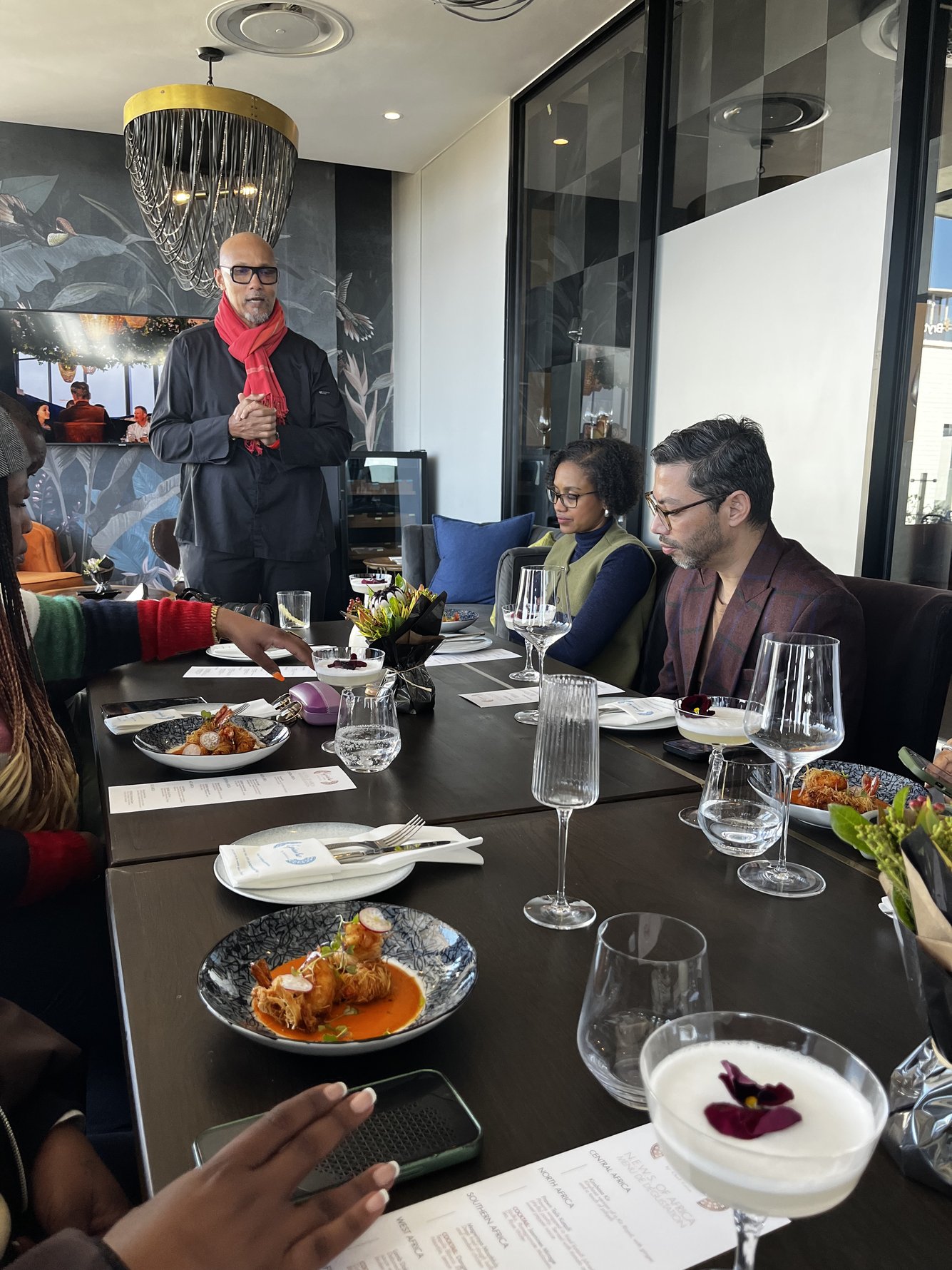
Photo: Johannesburg In Your Pocket.
Across Ma Passion, Sel et Poivre, and Épicure, what’s the one constant you’ve carried through every culinary venture?
Respect. For ingredients, craft, and guests. Every restaurant I’ve opened is an expression of gratitude to my mother, to my continent, to the people who trust me with their palate and their stories.
"African cuisine is still viewed through a limited lens, and perceived as unrefined or unworthy of fine dining." – Chef Coco Reinarhz
Lamb Dakhine from West Africa uses broken rice – historically a lesser grain – and turns it into something elevated. Could you share another humble ingredient you’re working to reclaim or elevate and how you’re honouring its story in your kitchen?
Cassava. It’s everywhere, yet overlooked. We turn it into purée, crisps, and buns, proving that value comes from creativity, not status.
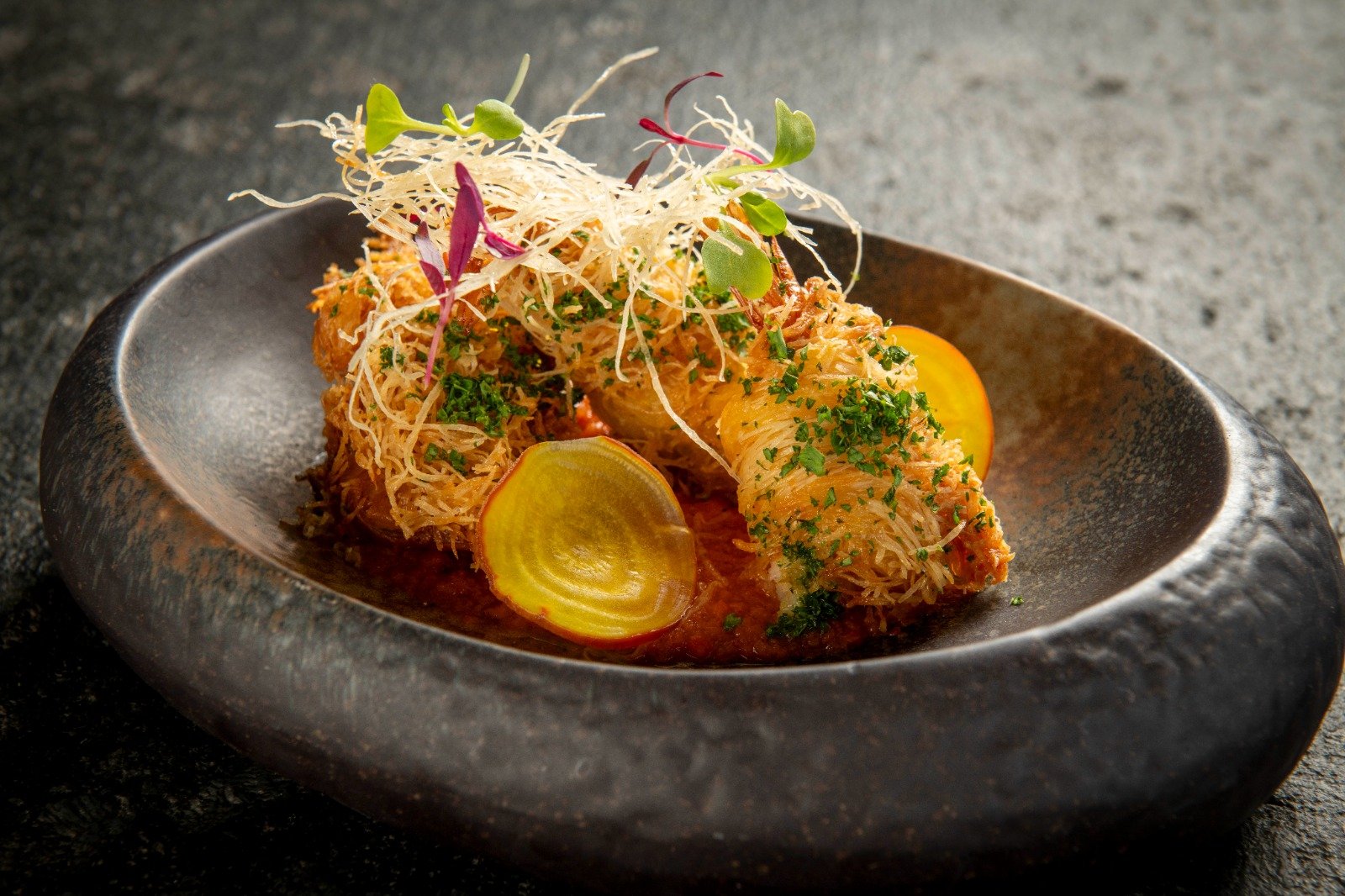
You’ve cooked in Belgium, Congo, and Joburg. Which city taught you the most about who you are, not just how to cook?
Johannesburg taught me not only about the variety of ingredients that we have at our disposal, but also to love people. This city is where I came together.
Can you give us a hint of what’s cooking at Épicure for 2026?
We will be introducing more dishes that showcase the influence of African food on other parts of the world.
Follow @epicure_restaurant on Instagram and book your table here.
Rapid-fire round: Six questions about Joburg
What brought you to Joburg and/or what makes you stay?
Opportunity brought me. Energy keeps me.
What is a surprising thing people might learn about Joburg by having a conversation with you?
How safe it is.
What three things should a visitor not leave Joburg without seeing or experiencing?
Dinner at Épicure, learn about Soweto’s history, and the vibrant nightlife.
Your favourite Joburg chef or favourite Joburg restaurant?
There are too many to name. Joburg’s strength is its diversity. But I have a soft spot for chefs who cook with heart, not ego, so if I had to name one, it would Chef Wandile Mabaso.
If you were Joburg’s mayor for one day, what would you change?
I’d create more public spaces where people can gather, eat, and share ideas, because food builds community.
Three words that describe the city.
Vibrant. Fearless. Evolving.


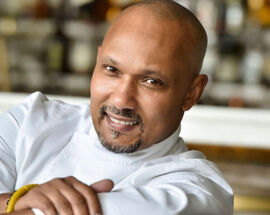
_m.jpg)
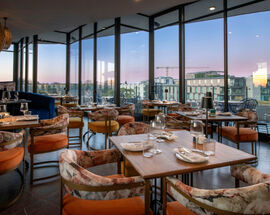


Comments